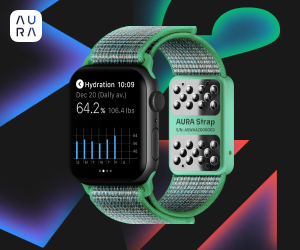Anti Stress Diet
Periods of pressure and stress, short or long, are part of everybody’s life, whether caused by disturbing events (death in the family), unusual challenges (a new job) or even happy changes (promotion). You may not be aware of it but stress affects your body’s ability to handle various kinds of foods.
One thing that happens when you are under stress is a sudden constriction of your blood vessels. This raises your blood pressure and also reduces the amount of blood going to your stomach and intestines. The flow of enzymes (digestive aids) is slowed as well. Much of the food you eat, particularly if it has a high fat content, is therefore poorly digested. Instead of being broken down properly, it ferments in the intestine, causing gas and distension.
Another thing that happens right away in any stress reaction is a hormonal alert that your blood needs more glucose-in other words, you feel more hungry. This may prompt you to eat a lot of carbohydrates, either sugar or starch. The reaction is an appropriate one if you are facing strenuous physical exertion, but it gives you only surplus calories (increase in weight) if the stress is psychological.
Here are some helpful pointers you can follow for an anti-stress diet:
Cut down on table salt and other sources of sodium because of their link with high blood pressure. Remember that preservatives may also contain sodium.
Drink only moderate amounts of coffee and tea and remember that caffeine is present in both. Caffeine, nicotine and alcohol are stimulants.
You should have eight big glasses of fluids in a day. It can be in the form of any drink, but make sure you drink at least two glasses of plain water daily. This helps to flush waste products out of the body.
Eat foods that are rich in potassium, like oranges and bananas. Potassium is essential for the right balance of the minerals within body fluids and plays a key role in muscle contraction.
Be sure you are getting enough calcium, as you tend to lose more than usual when you are in a stressful situation. You should try to have at least two glasses of skimmed/toned (reduced fat content) milk in a day.
Vitamin C is important, as it keeps the walls of the capillaries flexible. The blood vessels constrict at the first sign of stress, and this results in the depletion of vitamin C in the body. Sources of vitamin C are the citrus fruits (orange, lime, lemon, grapefruit) and fresh vegetables eaten raw as salad.
The vitamin B complex serves as a catalyst in the production of energy, and in the metabolism of protein and fats. It is also necessary for the working of the central nervouS system. In conditions of stress (especially physical), supplements are advisable. Increase the intake of green leafy vegetables, eggs, milk, whole grains, sprouts and yeast (khameer).
Nitrogen, the base of the body’s protein, is excreted under stress. So the protein intake should be increased by 10% during a stress period.
Five small meals are lighter than three large ones on the digestive system. The additional small meals can take the form of afternoon or evening snacks.
Relax before a meal. Sit down at the table for every meal, putting your worries aside.
Try and include apples (with the skin), apricots, bananas, French beans, cabbage, cauliflower, cherries, corn, grapefruit, lemon, lettuce, melons, mushrooms, ladies’ fingers, oranges, peaches, pears, peas, pineapple, plums, potatoes, rice and tomatoes in your diet. They are high potassium and low sodium foods.
Relief in Hot Flashes
Not all women want to take hormone replacement therapy, although it’s known to make menopausal life better - especially the hot flashes. Instead, the diet can be modified to eradicate the flashes.
Soybean has been found to give hot-flash relief. Eating or drinking two servings of soya day in the forms of soybean dal, nuggets, soymilk or tofu, takes 4 to 6 weeks to show the effect.
Avoiding certain foods can also give relief in hot flashes. Hot and spicy foods and hot drinks (tea, coffee) should be avoided. Also, avoid large meals as they increase the body temperature, especially meals that are high in fat.












Comments
Post a Comment